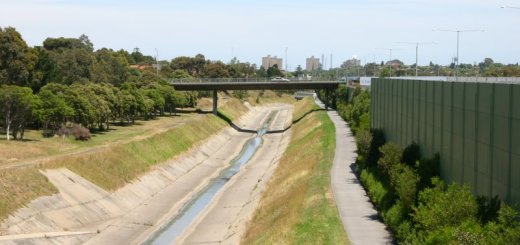
Introduction
While beginning a new business, most people go with renting a commercial property, as it is cheaper, more flexible, and hence, more profitable. Even as an investment, commercial properties are high in demand for the huge returns they can produce. Be that as it may, the procedure of commercial leasing is not too simple. In fact, it is extremely different from the process of residential leasing, owing majorly to the grandeur of a commercial property and the flexibility of a commercial lease. Unless you, yourself, are a commercial lawyer, a real estate agent, or at least have been in the business for a long time gaining a lot of knowledge and experience; it is highly advisable to hire a commercial lease dispute lawyer to see you through the process. In this article, we have talked about the basics of the procedure everyone thinking of being involved with a commercial lease should be aware of.
Commercial property and commercial lease
Before we talk about the commercial lease, we need to understand what commercial properties are. Commercial property means a real estate property that is used for business purposes – essentially a land that is intended to generate a profit. It refers to not only buildings that house businesses, but also larger residential rental properties. In general, the commercial property includes malls, grocery stores, manufacture shops etc. as retail properties; as well as office buildings, medical centres, hotels, multifamily housings, farmlands, warehouses, and garages.
What is a commercial lease
Under Australian commercial property law, a lease is a grant of exclusive possession of land for a specific amount of time. A commercial lease is a legally binding agreement that sets out the rights and obligations of the owner of a commercial property (known as the landlord or lessor) and a third party that has agreed to occupy the property (known as the tenant or lessee), at the time of renting a property. Before signing a commercial lease, both parties need to understand the terms and ensure they can meet all the terms and conditions, and so most commonly, both parties come with commercial dispute lawyers to negotiate their cases and write the agreement accordingly.
What you need to know about commercial leasing
A commercial lease does not have a specific format and commercial lawyers differ in making a format for the same. Whether you are the landlord or the tenant of the property, remember that every single clause on a commercial lease is negotiable and therefore, should be negotiated in the presence of a commercial lease dispute lawyer in order to avoid a dispute later.
- Rent:
Rent is generally agreed upon an annual amount and paid by monthly instalments. The amount can vary between cities, streets, and even levels of the same building. For retail leases, commonly a component of the rent is calculated as a percentage of the business’s profits. For commercial premises, rent is normally calculated based on price per square meter of the leased area. However, the areas to be included in the rent, i.e., the elevator, interior walls, etc. are open for negotiation and so are the lease terms and the rent amount.
In addition, commercial property rent agreements very commonly hold the option of a rent increment of 3-4% every year, to the very least. Depending on the property and the possible ROI of the tenant, a landlord can negotiate it with the tenant at the time of signing the contract.
- Security deposit:
In general, the landlord asks the tenant to submit a certain amount in the form of security at the time of renting the property in preparation for the unfortunate situations when he is unable to pay the rent. The security is usually for an amount equal to 3 month’s rent and is by way of bank guarantee. If the tenant is an organisation, then personal guarantees from the company directors may also be required.
- Term of lease:
Commercial leases are more complicated than residential ones since the lease terms can vary significantly for different types of leases. They can be used for six months to ten years, as well as for long term like fifty years. However, there might also be an “option period” cited in the lease which gives the tenant an option to extend their lease for a specified amount of time after the original lease ends.
- Renovations:
Tenants can carry out renovations on a commercial property with the consent of the landlord. However, the agreement for the lease usually mentions the terms for the same to ensure that the new works stick to the original standard or design of the building. Before the works start, the tenant must submit their plans for the building to the landlord, along with all necessary government permits and appropriate insurance; and will require approval from the landlord for carrying out the same.
It can so happen that the landlord provides a completely unfurnished property, and the tenant does all the fittings and fixtures himself. The tenant should make sure that a clause about the details of the modifications to the property is clearly cited in the document – if they are allowed, to what extent they are allowed, how much maintenance is required to the property, and the like.
- Repairs and maintenance:
In general, the repairs and maintenance of a commercial property is expected to be done by the tenant himself, unless otherwise stated in the lease agreement. Also, no matter how many renovations are allowed, usually, the landlord expects the tenant to leave the property in its original condition by the end of the agreement. So it is important for the tenant to have a negotiation about the same before signing the documents.
- Other costs:
The tenant is expected to pay the land tax (except for retail leases), legal expenses, insurance costs, and the price for utility services. Sometimes the landlord’s cost for preparing the lease is also taken from the tenant.
- Subletting:
With the permission of the landlord, the tenant of a commercial property is allowed to sublet the property with the terms mentioned in the lease. It is always a good idea for the tenant to have the permission of subletting the space since that way, he can decide the next tenant, and the rent is taken care of in the case of a permanent relocation. If the landlord wants to reassign the property to an entirely different party, the tenant gives written consent about the terms of such a scenario at the time of signing the lease.
- Relocation:
Until the end of the term of the lease, the landlord cannot legally relocate the tenant, even if the property is sold off to another party. Nevertheless, the landlord can offer certain incentives for relocation.
Sometimes the landlord might go under a foreclosure action and the property might be seized from him. To be protected from a circumstance like this, it is always better to have a non-disturbance agreement signed with your landlord’s lender while signing the rent agreement.
The tenant can voluntarily leave if he wants by submitting a surrender agreement to the landlord. He will have to pay a break fee, however, in this case. This break fee will be determined by the market conditions at the time of him moving out and be inclusive of all costs for the property to be advertised and leased out to a new tenant as well as the rent until the commencement of the new lease.
- Disputes:
No matter how well you conduct your business, and how careful you have been with the negotiated terms of your lease agreement, a dispute can occur at any time. The tenant and the landlord may encounter disputes. An insurance company may dispute a homeowner regarding the responsibility of a party injured on the property, or an area of the property damaged. Many more such events may happen.
Most of these disputes can be resolved without taking the matter to court and that’s what is advised, given the hassle, length, and the cost of such proceedings. However, real property laws vary from state to state and as you must have realized from the issues discussed above, some cases may become more complicated than others. In such a case, if your dispute requires filing a claim and appearing in court, a commercial lease dispute lawyer is indispensable.
Conclusion
Court proceedings are costly and long, and commercial leases are complicated. So when you employ commercial dispute lawyers to represent you, it is crucial that you only choose ones who will care about your case, listen to you patiently, investigate your case thoroughly, and help you in every way to cut costs and save time.









